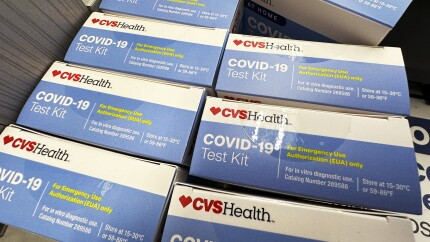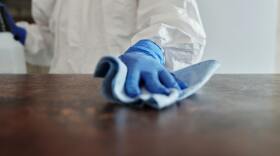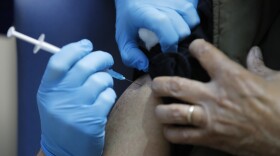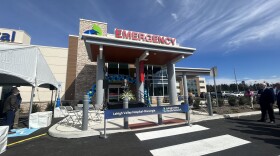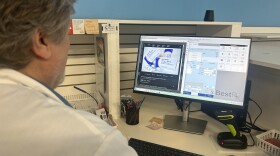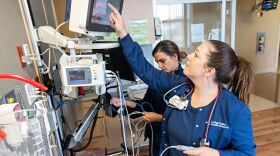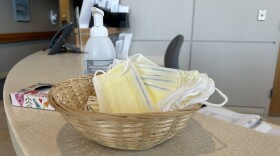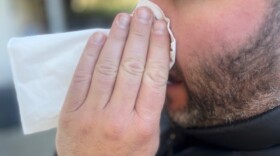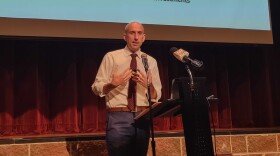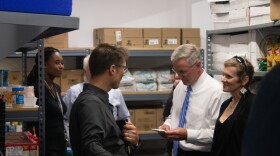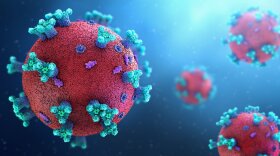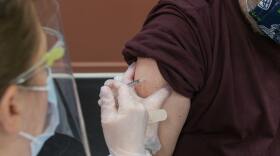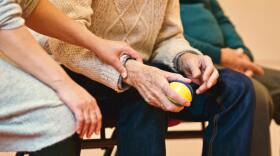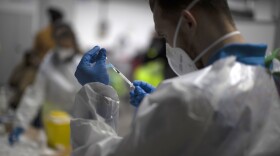-
Phil Gianficaro/LehighValleyNews.comLehigh Valley Health Network Childcare Center at River Crossing YMCA observed its 100th day of operation. Services are available for LVHN employees and other community families.
-
Nam Y. Huh/APThe US is mailing Americans COVID tests again. Here's how to get them
-
Coronavirus cases have spiked over the past few weeks — nationally and locally — putting people at risk for long COVID. The condition can have people feeling tired and sick for more than three months.
-
The Wicked Chef, a fast-casual restaurant serving sandwiches, salads and sides, reopened July 2 after closing due to the pandemic.
-
County Executive Lamont McClure said the closings mark the end of a significant chapter in the county’s COVID-19 response. More than 3.5 million cases and 50,000 deaths in Pennsylvania have been attributed to COVID since 2020.
-
WLVR's Megan Frank talks with journalists Stephanie Sigafoos and Brittany Sweeney.
-
The medication used to treat COVID-19 is widely available, but underused for treatment. Although it’s no longer free through the government, most insurances still cover the drug.
-
A lack of educators, a retiring generation, and a pandemic that produced stress and burnout all have contributed to the shortage of health care workers, such as nurses. Lehigh Valley Health Network and St. Luke's University Health Network are both focused on attracting new talent.
-
Early education advocates say there has been a slow erosion of the number of programs, workers and classroom slots in the Lehigh Valley, and across Pennsylvania, since federal funding expired last year.
-
Health systems in Philadelphia are choosing to bring back mask mandates. St. Luke’s University Health Network and Lehigh Valley Health Network are weighing in on what's happening locally.
-
Is it COVID-19, RSV, or the flu? Doctors are saying it could be any of the three or even whooping cough. Respiratory illnesses are on the rise following the holiday season and there may not be a reprieve for a while.
-
Bethlehem Mayor J. William Reynolds said Bethlehem's strong fiscal position should allow it to continue grants funded by the American Rescue Plan, even after the federal money runs out.
-
With more people vaccinated every day, it looks like municipal pools, which were shuttered since the start of the pandemic, will be open to help people beat the heat this summer.
-
The COVID-19 vaccine helps to prevent people from getting coronavirus. And the shot has other benefits, too.
-
Roughly 20% of elder care residents across Pennsylvania have yet to be vaccinated according to numbers from the Pennsylvania Department of Health.
-
Infectious disease specialists say one in four people who develop COVID-19 will have recurring symptoms after a month. St. Luke’s University Health Network has just rolled out a program to treat so-called “long-haulers.”
-
Nearly one in five residents at Pennsylvania’s long-term care facilities has yet to receive the coronavirus vaccine. But on April 15, state health officials announced some steps to close that gap.
-
New research shows there is only a small chance of contracting the coronavirus by touching surfaces
-
Nearly 2 million Pennsylvanians rely on the state’s Supplemental Nutrition Assistance Program (SNAP) benefits in order to keep food on the table.
-
HARRISBURG, Pa. - Pennsylvania’s top health official says there's enough critical medical equipment in the state to meet current needs in hospitals.…
-
Pennsylvania is preparing to ease COVID restrictions this weekend. Bars and restaurants can serve alcohol without food, lift curfews and increase capacity. But the move comes as COVID cases are on the rise and service employees may not be vaccinated yet.
-
Bethlehem-based OraSure Technologies has submitted its new rapid COVID home test for U.S Food and Drug Administration emergency approval.
-
Now that Congress has passed the new COVID relief plan, state and local governments are learning whether they can use the money for roads and county health bureaus.
-
The Pennsylvania Department of Health recently decided to allocate COVID-19 vaccines to providers who can get the greatest amount of shots administered.


